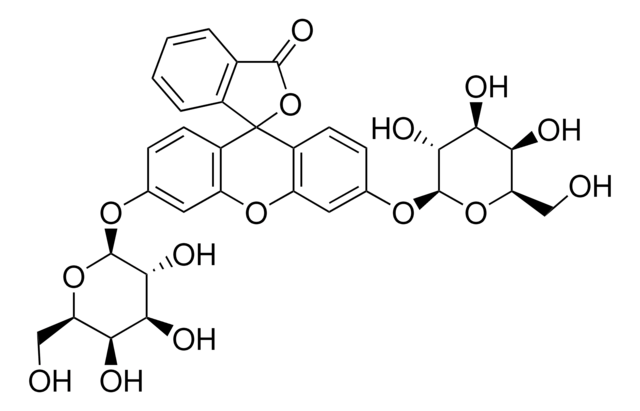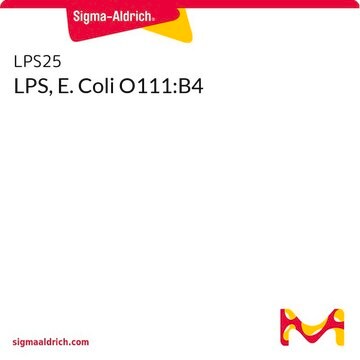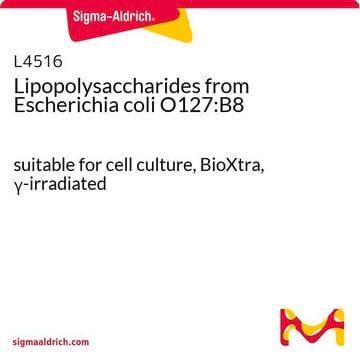L2387
Lipopolysaccharides from Salmonella typhosa
purified by gel-filtration chromatography
Synonym(s):
LPS
About This Item
Recommended Products
biological source
bacterial (Salmonella typhosa)
Quality Level
form
lyophilized powder
purified by
gel-filtration chromatography
impurities
<1% Protein
color
white to faint yellow
solubility
water: soluble
storage temp.
2-8°C
Looking for similar products? Visit Product Comparison Guide
General description
Application
Biochem/physiol Actions
Preparation Note
Other Notes
related product
Signal Word
Danger
Hazard Statements
Precautionary Statements
Hazard Classifications
Acute Tox. 2 Oral
Storage Class Code
6.1A - Combustible acute toxic Cat. 1 and 2 / very toxic hazardous materials
WGK
WGK 3
Flash Point(F)
Not applicable
Flash Point(C)
Not applicable
Certificates of Analysis (COA)
Search for Certificates of Analysis (COA) by entering the products Lot/Batch Number. Lot and Batch Numbers can be found on a product’s label following the words ‘Lot’ or ‘Batch’.
Already Own This Product?
Find documentation for the products that you have recently purchased in the Document Library.
Customers Also Viewed
Articles
Explore the structure, function, and diverse applications of Lipopolysaccharides. Discover their role in bacteria, serological specificity, and research potential.
Explore the structure, function, and diverse applications of Lipopolysaccharides. Discover their role in bacteria, serological specificity, and research potential.
Explore the structure, function, and diverse applications of Lipopolysaccharides. Discover their role in bacteria, serological specificity, and research potential.
Explore the structure, function, and diverse applications of Lipopolysaccharides. Discover their role in bacteria, serological specificity, and research potential.
Related Content
Lipopolysaccharide (LPS) is a major component of Gram-negative bacteria, important for microbiological research.
Lipopolysaccharide (LPS) is a major component of Gram-negative bacteria, important for microbiological research.
Lipopolysaccharide (LPS) is a major component of Gram-negative bacteria, important for microbiological research.
Lipopolysaccharide (LPS) is a major component of Gram-negative bacteria, important for microbiological research.
Our team of scientists has experience in all areas of research including Life Science, Material Science, Chemical Synthesis, Chromatography, Analytical and many others.
Contact Technical Service



